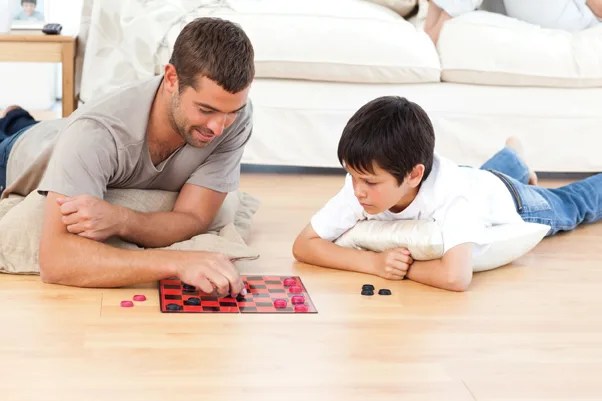Whether you’re mentoring through an organization or on your own, you don’t need to be extraordinary in any way. Here are five tips to help you be a good mentor.
 Whether you’re mentoring through an organization or filling the role with a child you already know, here are some guidelines to follow:
Whether you’re mentoring through an organization or filling the role with a child you already know, here are some guidelines to follow:
Be consistent.
The key to any effective mentor relationship, says Josephine Todisco, assistant director of services for Big Brothers Big Sisters of Long Island, is consistency. Before you sign up, make sure you have the time for the commitment. Mentoring works best when it’s a stable relationship over a long period of time—generally a year or more—so make sure you have a schedule with room for that kind of obligation. “The last thing we want to do is set up a match and a few weeks later it falls apart,” Todisco says. “A lot of kids in our programs already have disappointment in their lives. The last thing we want to do is cause more of that.”
Keep an open mind.
It’s likely that your mentee will come from a different background and socioeconomic status. Leave behind preconceived notions, and be ready to learn as well as teach. “Katie and I come from two totally different backgrounds and cultures,” says Barbara Cohen of Syosset, a Big Sister of Big Brothers Big Sisters of Long Island. “When we were first matched, there was a lot of learning going on, on both sides. That’s the positive, for both mentor and mentee. It’s about doing things you enjoy together, and learning together in a safe, positive environment.”
Be firm, but friendly.
Mentors should help kids figure out what their goals are and how to meet them, but the relationship comes with less pressure than being a parent or teacher. “They should challenge them and push them…to the next level, but in a compassionate way,” says Maya Nussbaum, founder of Girls Write Now.
Partner with the parent.
A mentor relationship is special because it’s a middle ground between a teacher and a friend. But a mentor is not a replacement for a parent—rather, the mentor and parent(s) should work together to help a child reach his potential. “It goes back to that ‘It takes a village’ concept, that you’re working together for a common goal,” Cohen says. “The mentor and parent need to trust each other and work together to provide stability and support for the child.”
Offer a different perspective.
Good mentors offer mentees a bigger view of the world and themselves, including what they can become. Often, mentoring focuses on teaching a specific skill that the child doesn’t have access to learning in their regular environment. Dan Isenberg, cultural arts director for the Boys & Girls Club in Northern Westchester, says his experience working with performers like Kanye West helps him find a common ground with kids looking for an outlet in music. “The kids I’m really close with, they don’t have an outlet for their interest. They don’t have anyone else to teach them or give them advice on music,” he explains. “I’m a guy who knows that world well, and they look up to me because of my experiences.”
Most of all, a mentor doesn’t need to be extraordinary in any way—just an individual willing to commit to spending time with a child who needs someone to talk to (and shop with) once in a while. Well, that’s pretty extraordinary.
Types of Mentoring
Traditional mentoring is a one-on-one relationship, sometimes called a Big/Little relationship, in which one mentor is matched with one child based on common interests. The pair meets regularly (usually once a week) over the course of a year or more. The relationship tends to be close and requires a serious commitment on both sides.
Other types of mentoring include:
Group Mentoring: One adult volunteer builds relationships with a number of young people. Meetings can take place with a focus on a particular project or an ongoing activity.
Team Mentoring: A group of two or more adults work together as a team to mentor a group of youths. This system often focuses on team building, leadership development, and community service.
Family Mentoring: Low-income families face enormous obstacles in getting basics like food and shelter. The stress can severely disrupt family life and lead to homelessness. These families can be matched with mentors (possibly another entire family) who work with them over an extended period of time to connect them to useful community resources, help them develop life skills, and strengthen their family relationships.
Also see:
Being a Mentor is a Big Commitment, So Why Do It?
The Mentor Effect: Helping At-Risk and Underprivileged Kids




















